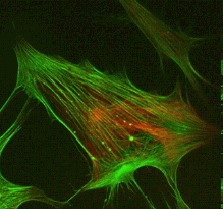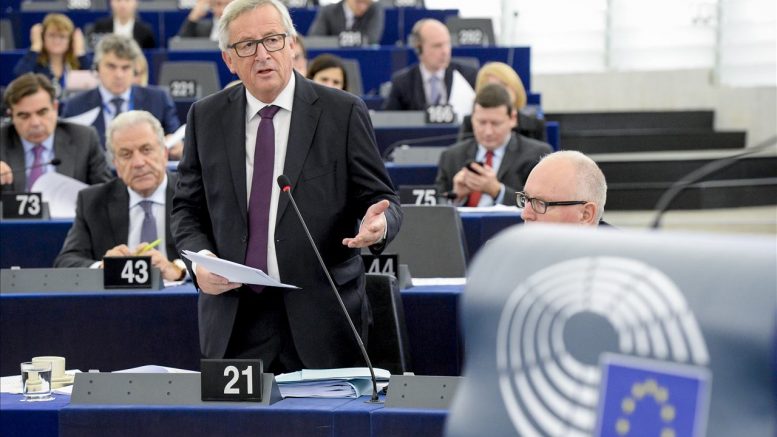Dear Monsieur Juncker,
I have been thinking of you recently.
With Brexit and CETA, it must seem like life is not getting any easier. Yet, as the new Nobel Laureate Bob Dylan sings: “They say the darkest hour is right before the dawn”.
My proposition
Can I jump straight in and propose a European Health Service?
You may have noticed that during the recent UK Referendum there was a big red bus promising £350 million a week for the UK National Health Service (NHS) – a benefit of leaving the European Union (EU).
It was a powerful proposal, and arguably one that just nudged the Brexit majority across the finishing line. The NHS is a UK national treasure and politicians of any colour mess with it at their peril. The UK has an ageing population, like Europe, and many from the older “Patrimonial Middle Class” are rather well off. A fear that their long retirement may be spoilt by bad health looms as a serious worry. So, the £350m could come in quite handy each week. You see, it’s quite rational for the old to be more in favour of Brexit.
In fact, if I needed to choose between the NHS and the EU, I would choose the former every day of the week.
Actually, the NHS and the EU are similar in many ways. Both are extremely large organisations that form eco-systems in themselves in which management and control are mysterious and opaque – though it is probably better not to go down that track. But, as much as the NHS is hugely popular, the EU suffers from an almost statutory unpopularity. Think of the wonderful celebration of the NHS that opened the 2012 London Olympics. Can you imagine the same in Brussels?
The cunning plan
Now, you may argue that Europe already has a health system in each country and there is no point in duplicating this. You are right, of course, but this is the cunning part of the plan.
Many country’s national healthcare systems are struggling and the prognoses are not good. An ageing population is combining with a frightening rise in serious and expensive chronic diseases. Diabetes itself is soon expected to eat £10bn of the £112bn NHS annual budget in England alone. Add cardiovascular and musculoskeletal diseases, with various forms of dementia and organ failure and, well, you get the picture.

cells have increasing therapeutic use
There might well be a solution in new innovative therapies, typically cell and gene therapies and regenerative medicine. The European Commission (EC) is already paying for much research, with €144.5 million recently dedicated to Horizon 2020 research projects. It is a good start and, although there is a long way to go, now is the time to kick off the clinical applications. Eventually, all this work could change healthcare itself from treating the symptoms of a disease to enabling the body to better repair itself. A person’s own immune system could be supported and encouraged to attack cancer cells. Organ function could be restored, nerves reconnected and painful arthritic joints relined with new cartilage. Vision, mobility and the “plumbing” may all be restored.
The existing European health systems would find it very difficult to take on these new therapies. They are locked down with budget constraints. They need new hospitals with a supply infrastructure that can develop, produce and deliver complex biological products.
Imagine cell factories not unlike the huge semiconductor foundries that supply the IT industries. So, this is not just about enhancing European health but also about growing a new high-value manufacturing industry.
Imagine placing these facilities in parts of Europe that have the people able to provide the healthcare services. So, instead of economically active healthcare workers having to leave their own regions and migrate to places where they may not be welcome, why not bring the patients from across Europe and the world into the new European Health Service.
Health tourism could regenerate previously depressed regions in Europe.
Imagine EasyJet and Ryanair operating new routes to ferry NHS patients to Poland and Slovakia to receive cures for illnesses that can only be managed palliatively in their local hospitals, and at a much reduced total cost that could save the NHS itself.
In one stroke you would address the issues of migration and healthcare across Europe, whilst at the same time fostering important regional growth with high value manufacturing and supporting the European airline industry.
It is time to think the unthinkable.
Your legacy
When the NHS was created in 1948 it was largely through the inspiration and endeavour of one man: Aneurin (Nye) Bevan. He was a great Welsh socialist, a fiery personality and a wonderful orator. He was voted number one in a list of all-time 100 Welsh heroes. But most of all he is remembered as the Father of the NHS.
Imagine yourself as the Father of a European Health Service.
Yours sincerely

Dr Richard Bald
@DrRichardBald




